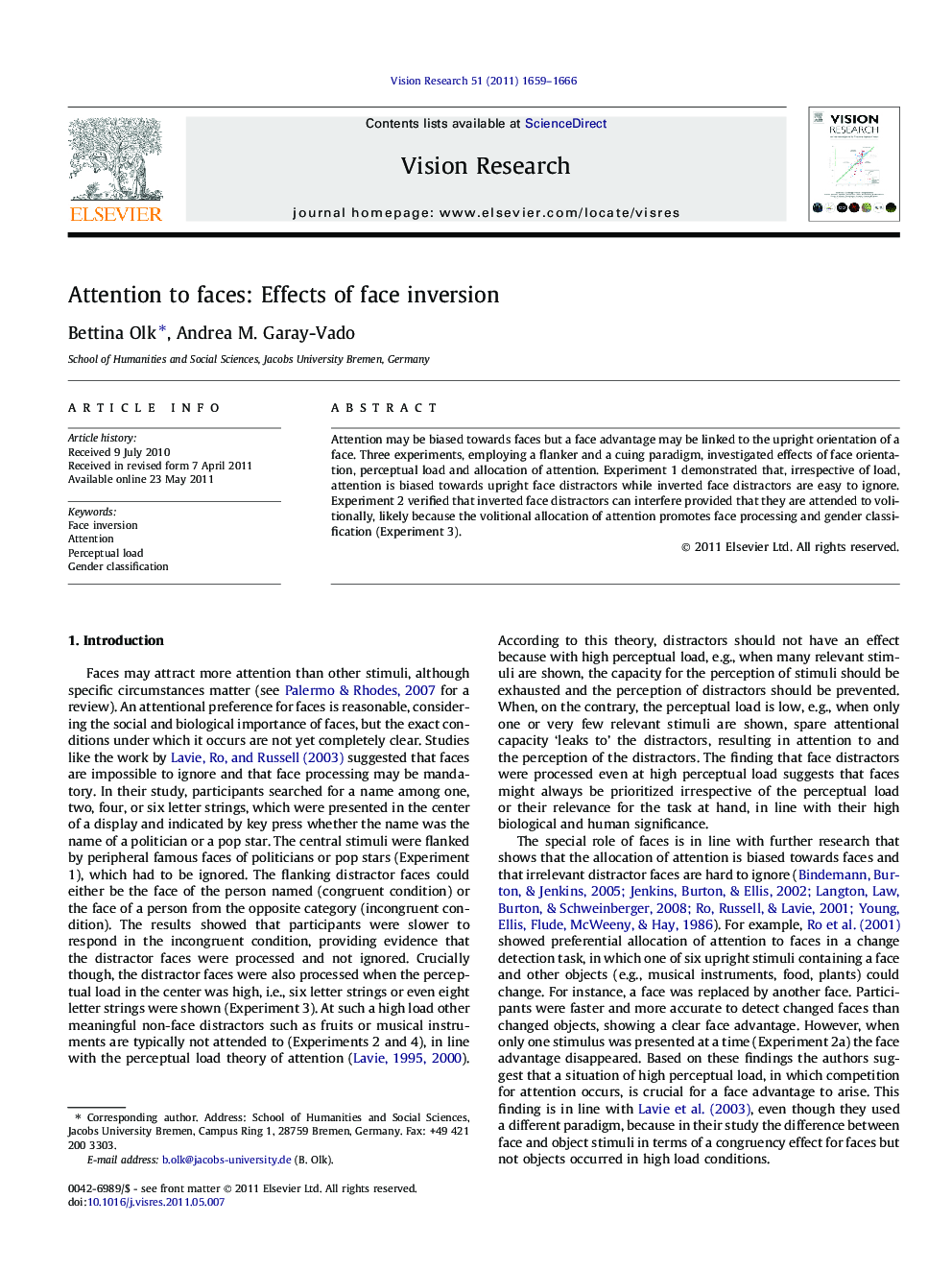| Article ID | Journal | Published Year | Pages | File Type |
|---|---|---|---|---|
| 4034192 | Vision Research | 2011 | 8 Pages |
Attention may be biased towards faces but a face advantage may be linked to the upright orientation of a face. Three experiments, employing a flanker and a cuing paradigm, investigated effects of face orientation, perceptual load and allocation of attention. Experiment 1 demonstrated that, irrespective of load, attention is biased towards upright face distractors while inverted face distractors are easy to ignore. Experiment 2 verified that inverted face distractors can interfere provided that they are attended to volitionally, likely because the volitional allocation of attention promotes face processing and gender classification (Experiment 3).
► Attention biases towards faces are modulated by face orientation. ► Attention is biased towards upright faces, irrespective of perceptual load. ► Inverted distractor faces are ignored when participants are instructed to do so. ► Volitional attention enhances processing of inverted faces.
